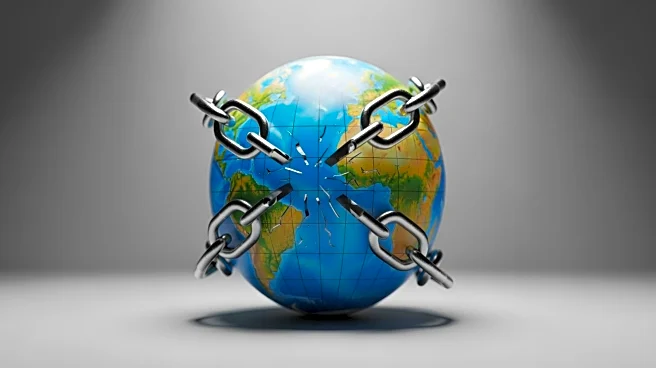What's Happening?
Hamas, a Palestinian militant group, has maintained control over the Gaza Strip since 2007, creating a complex geopolitical environment that deters international military intervention. The group's governance
and militant activities, coupled with ongoing conflicts with Israel, present significant challenges for external forces considering operations in Gaza. The presence of Hamas complicates the security landscape, raising concerns about potential clashes or alliances that could emerge if foreign troops were to intervene. Countries are cautious about deploying their forces due to Hamas's influence, diplomatic considerations, humanitarian concerns, and the implications of inaction on the ongoing conflict.
Why It's Important?
The reluctance of countries to send forces to Gaza underscores the intricate balance of international relations and the potential risks involved in military intervention. Political alliances, trade agreements, and historical engagements influence nations' stances on deploying forces to conflict zones like Gaza. The fear of escalating tensions or inadvertently fueling conflicts through military presence adds complexity to the situation. Additionally, the well-being of civilians in Gaza remains a top priority, with potential risks to civilian lives, infrastructure, and humanitarian aid efforts posing ethical dilemmas. The enduring conflict and humanitarian crisis in the region persist in the absence of robust international involvement, raising questions about alternative strategies for addressing the challenges posed by Hamas's stronghold.
What's Next?
As the dynamics in Gaza continue to evolve, the debate around sending forces to the region remains contentious. A diplomatic source has highlighted the need for a comprehensive approach to addressing the challenges posed by Hamas, emphasizing the importance of multilateral cooperation and diplomatic efforts in finding sustainable solutions. The broader implications of military actions on regional stability, diplomatic relations, and civilian well-being loom large. Finding a balance between addressing security concerns, respecting sovereignty, and promoting peace and stability in the region remains a formidable task for the international community.








